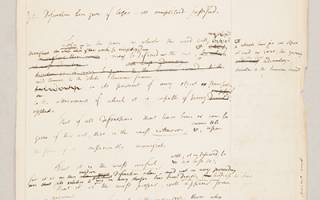Rome Regional Partnership Fund recipients revealed
22 January 2018
The Rome programme will see ten UCL academics receive funding for their projects, as part of a new series of region-specific funds.
11 UCL academics are set to receive up to £3,500 in funding for their projects, as part of a new series of region-specific funds aimed at fostering new partnerships or further developing existing links.
The Rome programme is led by Dr Florian Mussgnug, School of European Languages, Culture and Society and supported by the Pro-Vice-Provost (Europe) Dr Uta Staiger, in addition to UCL’s Global Engagement Office (GEO).
“Rich and diverse academic research”
The winning projects cover a vast array of research areas, including Rome in Medieval and Renaissance Europe; sound and image in cinema and reproductive health and parental responsibility.
“Involving a plethora of disciplines, areas of expertise and institutional partners, the projects chosen for Rome show just how rich and diverse academic research at UCL is – and how strong our international networks.”
Museum workshops
Professor Helen Chatterjee, Professor of Biology, UCL Biosciences, is among the successful applicants. Her project, ‘Rome as a centre for inclusive memory and shared heritage: Developing new approaches for cultural communication for disadvantaged communities’ will take place primarily in the Museum of Rome Palazzo Braschi, and will involve workshops and other educational activities from UCL, PB and Roma Tre researchers.
Commenting on her successful application, Dr Chatterjee said, “I am extremely grateful to the Global Engagement Office for providing funding to support our collaboration with Roma Tre University.
“These funds are providing us with an opportunity to co-run museum object handling workshops with marginalised audiences in museums in Rome, and exchange expertise about the benefits of cultural activities to psychosocial health and wellbeing, addressing issues of social isolation, displacement and skills acquisition.”
Jeremy Bentham studies
Professor Philip Schofield, Professor of the History of Legal and Political Thought, will also receive funding for his project, an ‘Anglo-Italian Workshop on the Philosophical Foundations of the Utilitarianism of Jeremy Bentham.’

“My host Gianfranco Pellegrino studied for two years at UCL as a Marie Curie Fellow, and worked on Bentham’s moral philosophy and its relationship to his theory of language and of mathematics. Other Italian scholars are now working on related themes, and I expect us to make some genuine progress in our understanding of these under-researched but key topics in Bentham’s thought.”
Each of the winning projects incorporate at least one public, private or student-focused event, the majority of which will take place in Rome between March and June 2018.
Rome Luiss University partnership
Professor Meg Russell, Professor of British and Comparative Politics and Director of the Constitution Unit, will also receive funding for her project, ‘The Challenges of Second Chambers: Parliamentary Bicameralism in Practice, and Prospects for Reform,’ which will involve two workshops in Rome.
She said, "I'm delighted to have won funds from UCL to support a partnership between the Constitution Unit and the Centre for Parliamentary Studies at Rome Luiss University to host two events on how parliamentary second chambers work, and how they can best be reformed.
“These events will be a great showcase for my own research on second chambers, and an opportunity to share ideas with Italian academics and policymakers. We plan to hold one event in the Italian parliament itself, thus hopefully contributing in a useful way to the policy process, and helping use UCL research and expertise to solve real-world policy problems."
It is hoped that each of the projects will enhance UCL's presence in continental Europe, through their blend of outward-facing, creative initiatives.
Congratulations to all of the winners. Full list of recipients and projects:
| Recipient | Department | Project description |
|---|---|---|
| Dr. Rocio Banos-Pinero | CenTraS | Translation as the language of Europe: Linguistic identity and communication in the post-Brexit age |
| Prof. Helen Chatterjee | Biosciences | Rome as a centre for inclusive memory and shared heritage: Developing new approaches for cultural communication for disadvantaged communities |
| Dr. Catherine Keen | SELCS, Italian | Imagining Rome in Medieval and Renaissance Europe |
| Dr. Lai Bun Lok | Electronic and Electrical Engineering | New UCL-Sapienza University of Rome collaborative in applications of ground penetrating radar for civil engineering and archaeology |
| Dr. Aarathi Prasad | Genetics, Evolution and Environment | Symposium on reproductive health and parental responsibility |
| Prof. Peg Rawes | Bartlett School of Architecture | Workshop to promote speculative and materialist architectural research collaborations between UCL-Rome HE institutions |
| Ms. Liz Rideal | Slade School of Fine Art | Ghost Trail (fantôme) |
| Prof. Meg Russell | Political Science | The challenges of Second Chambers: Parliamentary bicameralism in practice, and prospects for reform |
| Prof. Philip Schofield | Bentham Project | Anglo-Italian workshop on the philosophical foundations of the utilitarianism of Jeremy Bentham |
| Prof. Maria Wyke | Greek & Latin | Intersections between sound and image in cinema: Audio/visual Romans |
| Prof. Giandomenico Iannetti | Neuroscience, Physiology & Pharmacology | Reinterpreting saliency detection as a reactive rather than a perceptive process |
Images: The Pantheon, Rome (source: Max Pixel); The Vatican, Rome (source: Max Pixel); Bentham's manuscript on logic
 Close
Close

